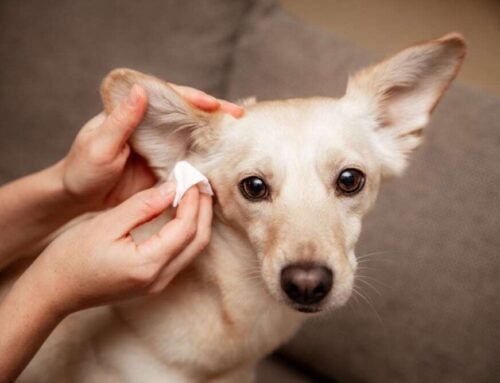If you’ve ever ended up at the animal emergency hospital because your pet ate something they shouldn’t have, you probably remember the panic you felt. Your home and yard are a pet playground of hazards, and keeping your pet safe is a priority. Cleaning up antifreeze spills, closing garbage cans, keeping cleaning products out of your pet’s reach, and locking the medicine cabinet are necessary to help ensure your pet can’t get into a human medication. Our Animal Medical Hospital of Naples team is concerned about your pet’s health and safety so we provide information on how human medications can endanger your furry pal and how to avoid a pet poisoning.
Pet poisoning risks
Never share your medication with your pet, even if you intend to help them feel better. Although veterinarians may sometimes prescribe human medicines for pets, they are experts in determining the proper dose and strength to administer to your four-legged friend. If you give your pet the exact dosage you take, you endanger your furry pal because humans and animals metabolize medications differently. When a pet ingests medication, their body metabolizes the substance in a way that makes it more potent and readily available. While a medication may be helpful for you, it can seriously harm your pet. Always consult with your veterinarian before giving any medication to your pet.
Medications that can sicken your pet
According to the American Society for the Prevention of Cruelty to Animals (ASPCA) Animal Poison Control Center (APCC), pets ingesting human medication account for almost 40% of pet poisoning cases in the United States. The following over-the-counter (OTC) and prescription human medications can each cause harmful health issues in pets:
- Nonsteroidal anti-inflammatory drugs (NSAIDs) — Common medications, such as aspirin, ibuprofen, and naproxen, can be highly toxic to pets. Despite their sweet, candy-like coating, these medications can cause severe illnesses such as stomach ulcers and kidney failure in pets. Stay vigilant and watch out for NSAID toxicity signs in your pet, including weakness, lethargy, vomiting, diarrhea, pale gums, abdominal pain, appetite loss, and seizures. If your pet exhibits any of these signs, seek veterinary care immediately.
- Acetaminophen — Cats are most at risk for Tylenol toxicity, but dogs can also get sick if they ingest this OTC medication. In cats, signs include increased thirst and urination, dark urine, facial and limb swelling, and skin yellowing. In dogs, Tylenol toxicity can cause weakness, high heart rate, panting, vomiting, drooling, and inappetence.
- Vitamins and supplements — You might take vitamins and supplements for your health, but these medications can make your pet sick. Vitamin D3, iron, alpha-lipoic acid, the sugar substitute xylitol, and mushroom coffee extract are common ingredients in supplements that are particularly hazardous to pets and can cause vomiting, seizures, liver failure, and death.
- Antidepressants and attention deficit hyperactivity disorder (ADHD) medications — If your pet swallows ADHD or antidepressant medication, they could experience tremors, elevated heart rate, and fever.
- Sleep aids and anti-anxiety medication — Medications commonly used as sleep aids and to repress people’s anxiety can harm pets. Dogs’ and cats’ toxicity signs may include an increased heart rate, uncoordinated movement, and restlessness.
- Cough and cold medicine — The active ingredients in allergy and cold medicine that make you feel better can make your pet ill. Pseudoephedrine and phenylephrine are particularly hazardous and can cause dangerously elevated heart rates, seizures, and death.
Prevent accidental pet poisonings in your home
Accidental pet poisonings occur frequently, with thousands of cases reported each year, and pet poison prevention starts with you! Refrain from taking medication with your pet right by your feet, because if you drop a pill, an eager mouth is waiting to gobble up the drug. Ensure this doesn’t happen by taking medications in a room away from your pet, such as in a bedroom or bathroom with the door closed. Always keep OTC and prescription medications in a locked medicine cabinet and off nightstands and countertops. Remember, child-proof doesn’t necessarily mean pet-proof.
In addition, keep backpacks, purses, and bags containing prescription or OTC medications out of your pets’ reach. Hang them up and out of reach each time you get home, keep them off the floor, and store them safely.
What to do if your pet ingests a dangerous medication

Human medications are dangerous for pets. If you believe your pet has ingested your OTC or prescription medication, call your veterinarian, the ASPCA Animal Poison Control Center, or another poison control hotline immediately for instructions.
Our Animal Medical Hospital of Naples team prioritizes your pet’s health. Through knowledge and prevention, you can protect your pet from getting into trouble with human medications and avoid a pet poisoning emergency. Contact us before giving your furry pal any medication.







Leave A Comment